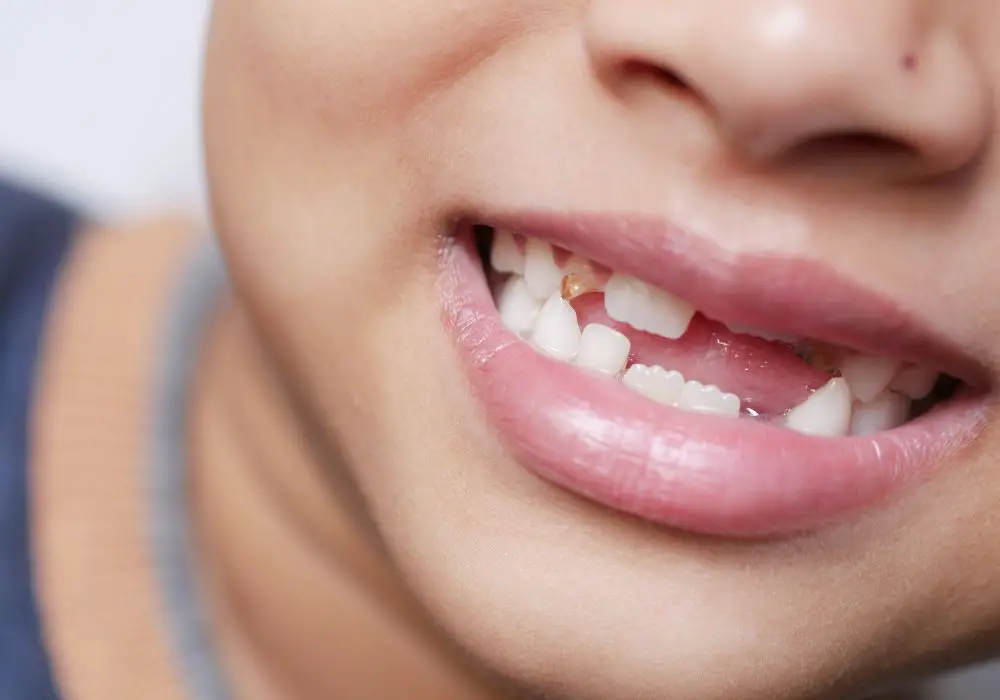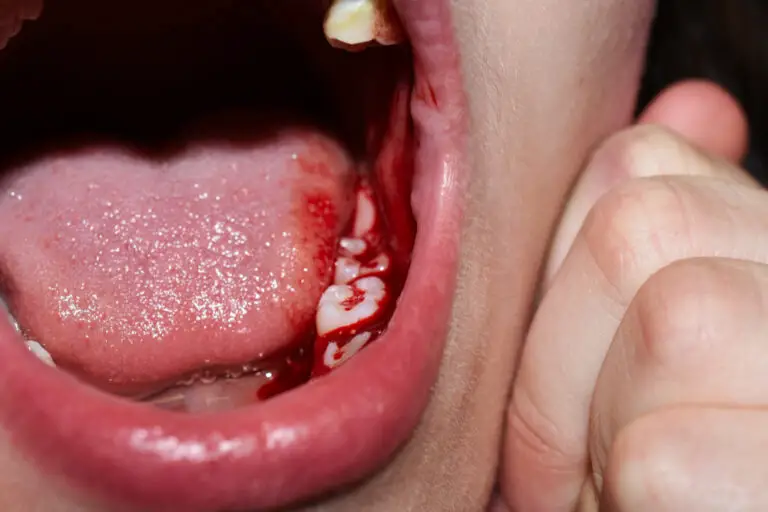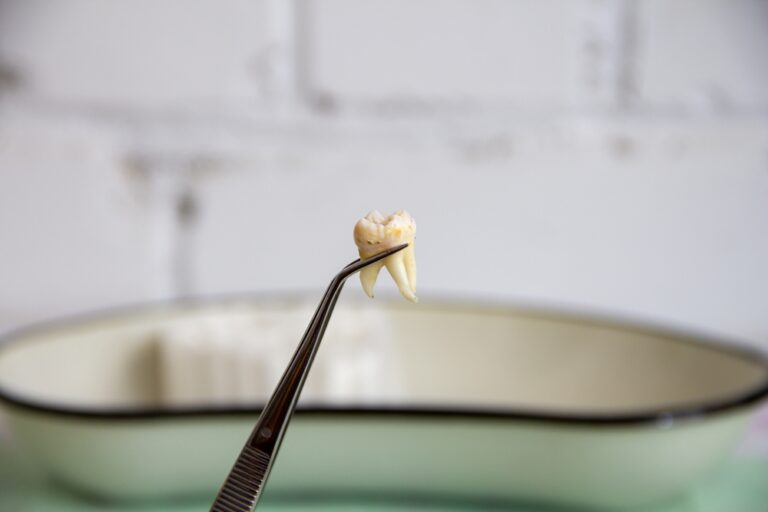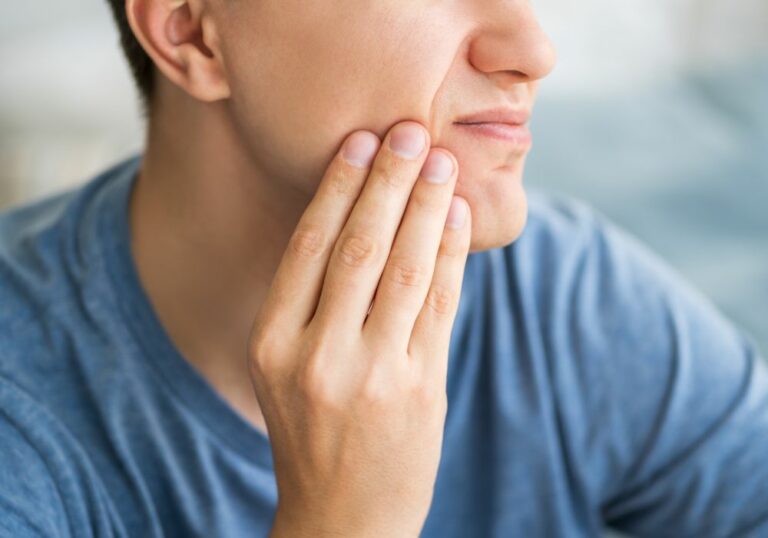Do you ever wonder why your teeth look the way they do? Are you curious if genetics play a role in your dental health? The answer is yes, your teeth are indeed influenced by genes.
Research has shown that genetics can affect the shape, size, and even the number of teeth a person has. For example, conditions such as hypodontia and oligodontia, which involve the absence of one or more teeth, are often genetic. Additionally, studies have identified specific areas of the genome linked to dental caries, or tooth decay.
Understanding the genetic factors that contribute to dental health can have important implications for clinical decision-making in dentistry. By recognizing genetic risk factors, dental professionals can provide more personalized treatment plans and preventive care. So, let’s explore the fascinating relationship between teeth and genetics and learn more about how genes can impact your dental health.
Understanding Genetics

Genetics is the study of how traits are passed down from one generation to the next. Every person has a unique set of genes that determines their physical characteristics, including the shape and structure of their teeth.
Your genes come from your parents, and each parent contributes half of your genetic material. This means that you inherit one set of genes from your mother and one set from your father. The combination of these genes determines your physical traits, including the traits of your teeth.
However, genetics is not the only factor that determines the health and appearance of your teeth. Environmental factors such as diet, oral hygiene, and lifestyle choices also play a significant role. For example, poor oral hygiene can lead to tooth decay and gum disease, regardless of your genetic makeup.
Researchers have identified several genes that are associated with dental health and development, including genes that control tooth shape, size, and structure. However, the exact role of these genes in tooth development is still not fully understood, and more research is needed to uncover their precise function.
In addition to influencing tooth development, genetics can also affect your risk of developing oral health problems such as gum disease and tooth decay. Certain genetic variations may make you more susceptible to these conditions, but environmental factors such as smoking, poor diet, and lack of oral hygiene can also increase your risk.
Overall, while genetics plays a role in determining the shape and structure of your teeth, it is not the only factor that affects your oral health. By practicing good oral hygiene and making healthy lifestyle choices, you can help keep your teeth healthy and strong regardless of your genetic makeup.
The Role of Genes in Dental Health
Dental health is determined by a combination of genetic and environmental factors. While lifestyle habits like brushing your teeth, flossing, and avoiding sugary foods are important, your genes can also play a role in the health of your teeth. Here are a few ways in which genes can affect dental health:
Tooth Eruption
The timing and sequence of tooth eruption is largely determined by genetics. Studies have shown that there is a strong genetic component to the timing of tooth eruption, with children of parents who had early or late tooth eruption being more likely to experience similar patterns. Additionally, genetic disorders like Down syndrome can affect tooth eruption patterns.
Tooth Size and Shape
The size and shape of your teeth are also influenced by your genes. Twin studies have shown that tooth size is largely determined by genetics, with heritability estimates ranging from 60-90%. Genetic mutations can also lead to abnormalities in tooth shape, such as peg-shaped or cone-shaped teeth.
Tooth Color
The color of your teeth is determined by a combination of genetic and environmental factors. While environmental factors like smoking and drinking coffee can cause staining, genetics can also play a role in the natural color of your teeth. For example, genetic mutations can lead to conditions like amelogenesis imperfecta, which causes abnormal tooth enamel formation and discoloration.
In conclusion, while lifestyle habits are important for maintaining good dental health, your genes can also play a role in the health of your teeth. By understanding the ways in which genes can affect dental health, you can take steps to maintain good oral hygiene and prevent dental problems.
Genetic Disorders Affecting Teeth

If you’re wondering if teeth are genetic, the answer is yes. Genetics plays a significant role in the development of teeth. Some genetic disorders can affect the structure, shape, and color of teeth. In this section, we’ll discuss two genetic disorders that can affect teeth: Amelogenesis Imperfecta and Dentinogenesis Imperfecta.
Amelogenesis Imperfecta
Amelogenesis Imperfecta is a genetic disorder that affects the enamel of teeth. Enamel is the hard, outer layer of teeth that protects them from damage. People with Amelogenesis Imperfecta have defective enamel, which can result in teeth that are discolored, pitted, and prone to damage.
There are different types of Amelogenesis Imperfecta, and each type affects the enamel differently. Some types affect only the color of teeth, while others affect the shape and size of teeth. In severe cases, Amelogenesis Imperfecta can lead to tooth loss.
Dentinogenesis Imperfecta
Dentinogenesis Imperfecta is a genetic disorder that affects the dentin of teeth. Dentin is the layer of tissue that lies beneath the enamel and forms the bulk of the tooth. People with Dentinogenesis Imperfecta have defective dentin, which can result in teeth that are discolored, translucent, and prone to damage.
Like Amelogenesis Imperfecta, there are different types of Dentinogenesis Imperfecta, and each type affects the dentin differently. In severe cases, Dentinogenesis Imperfecta can lead to tooth loss.
In conclusion, genetics plays a significant role in the development of teeth, and some genetic disorders can affect the structure, shape, and color of teeth. If you suspect that you or your child has a genetic disorder affecting teeth, it’s important to consult a dentist for proper diagnosis and treatment.
Environmental Factors Vs Genetics
When it comes to dental health, both genetics and environmental factors play a role. While genetics can determine the size and shape of your teeth, environmental factors can influence the development of dental problems. Here are a few environmental factors that can affect your dental health:
Diet and Oral Hygiene
Your diet and oral hygiene habits can greatly impact your dental health. Consuming sugary and acidic foods and drinks can lead to tooth decay, while a balanced diet can help keep your teeth healthy. Brushing and flossing regularly can also help prevent dental problems.
Smoking and Alcohol
Smoking and alcohol consumption can also have negative effects on your dental health. Smoking can lead to gum disease and tooth loss, while alcohol can cause dry mouth and increase the risk of oral cancer. It’s important to limit your consumption of these substances for the sake of your dental health.
While genetics can’t be changed, environmental factors can be modified to promote better dental health. By maintaining a healthy diet, practicing good oral hygiene, and avoiding harmful substances, you can help prevent dental problems and maintain a healthy smile.
Genetic Research in Dentistry

Genetic research in dentistry has made significant progress in recent years, providing new insights into the relationship between genetics and oral health. This research has helped to identify specific genes and genetic variants that are associated with various dental conditions, including tooth decay, periodontal disease, and malocclusion.
Genetic Testing for Oral Health
One of the most promising areas of genetic research in dentistry is the development of genetic tests for oral health. These tests can help to identify individuals who are at increased risk for certain dental conditions based on their genetic profile. By identifying these individuals early, dentists can provide targeted preventive care and treatment, potentially improving outcomes and reducing the overall cost of care.
Currently, genetic testing for oral health is still in its early stages, and there is much work to be done before it becomes widely available. However, as research continues to advance, it is likely that genetic testing will become an increasingly important tool in the prevention and treatment of dental disease.
Future of Genetic Dentistry
Looking ahead, the future of genetic dentistry is bright. As our understanding of the genetic basis of dental disease continues to improve, we can expect to see new and more effective treatments developed that are tailored to an individual’s unique genetic profile.
In addition, genetic testing for oral health is likely to become more widespread, providing dentists with valuable information that can help them provide better care to their patients. With continued investment in genetic research in dentistry, we can expect to see significant improvements in oral health outcomes in the years to come.
Frequently Asked Questions
Can genetics influence the health of your teeth?
Yes, genetics can play a role in the health of your teeth. While environmental factors like diet and oral hygiene are also important, certain genetic factors can make you more susceptible to dental problems like cavities, gum disease, and tooth decay.
What role do genes play in dental health?
Genes can affect the development and structure of your teeth, as well as the way your body responds to oral bacteria and inflammation. Some genes may also influence the production of saliva, which helps to protect your teeth from decay.
Is there a genetic component to tooth decay?
Yes, studies have shown that there is a genetic component to tooth decay. Certain genetic variations can increase your risk of developing cavities by affecting the strength of your tooth enamel or the composition of your saliva.
How much of dental problems are inherited?
While genetics can play a role in dental problems, it is important to remember that environmental factors like diet and oral hygiene are also important. The exact percentage of dental problems that are inherited varies depending on the specific condition and individual factors.
Can genetic testing predict oral health issues?
While genetic testing can provide valuable information about your risk of developing certain conditions, it is not currently possible to predict all oral health issues through genetic testing alone. However, genetic testing may be able to identify certain genetic variations that increase your risk of developing conditions like gum disease.
Are there any genetic disorders that affect teeth development?
Yes, there are several genetic disorders that can affect the development of teeth. Ectodermal dysplasia, for example, can cause missing or malformed teeth, while amelogenesis imperfecta can affect the formation of tooth enamel. If you suspect that you or a family member may have a genetic disorder affecting dental development, it is important to speak with a healthcare professional.






